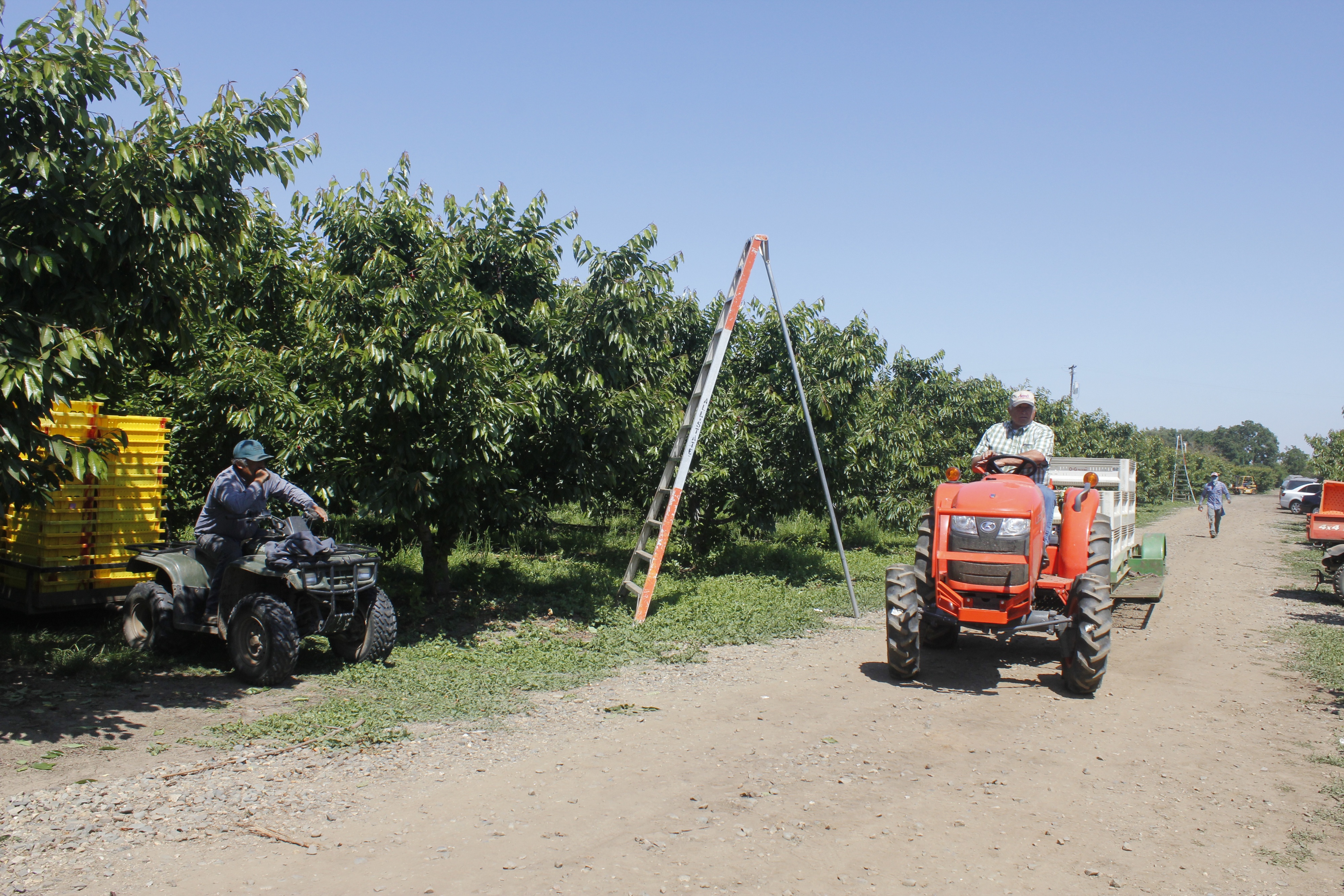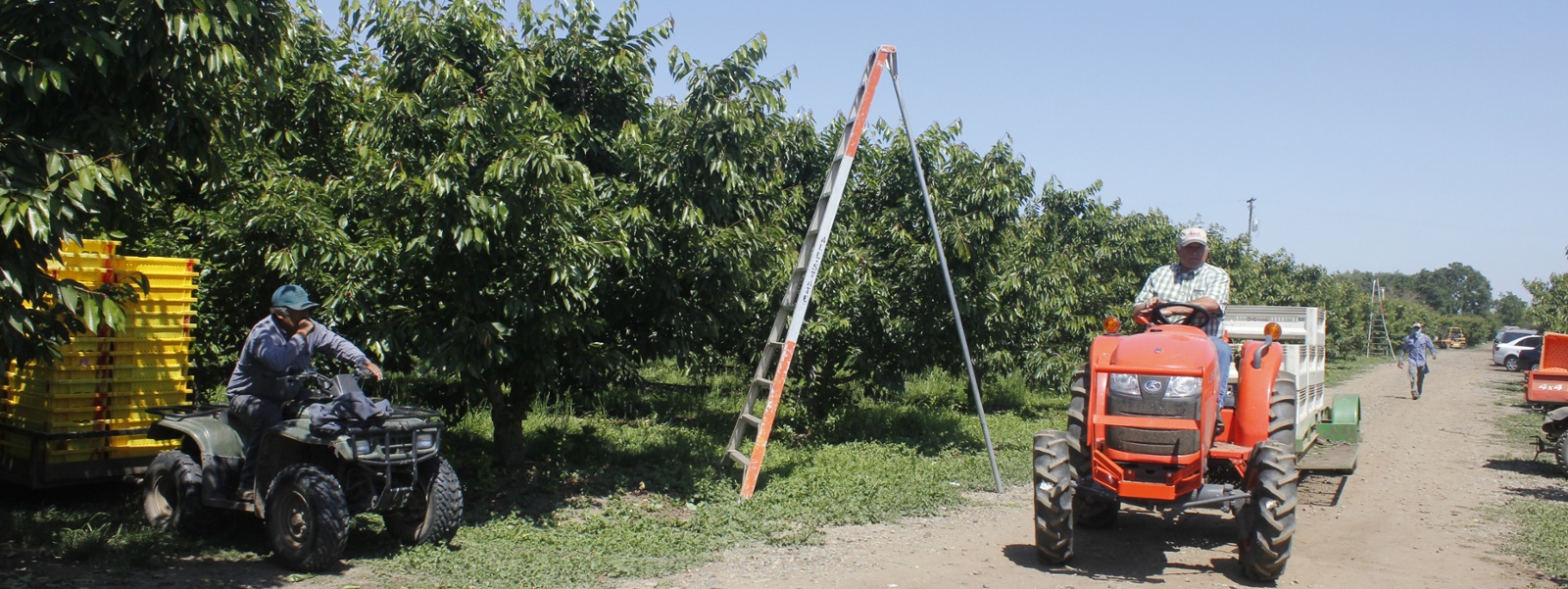Commentary: Farm workplace tested by a side deal on unionizing

Farm employees harvest cherries in San Joaquin County. Under a pending update to the state budget, farm employees may be subject to pressures to sign ballot cards or petitions from union organizers.
Photo/Ching Lee


By Bryan Little
In late March, in a normally routine process to update the state budget to conform to a law passed in a previous legislative session, a California Assembly subcommittee approved a budget change proposal for Gov. Gavin Newsom’s 2023-24 state funding plan. This action marked a significant change in state policy on how labor relations in agriculture will be managed in the future.
This action advanced a side deal between Newsom, the United Farm Workers and the California Labor Federation to ease unionization of agricultural workers, while eliminating requirements for secret-ballot elections for organizing.
The governor initially signaled last year that he would not sign the mail-in ballot card-check legislation, Assembly Bill 2183. But then the governor and the labor groups agreed amongst themselves to amend the bill—and he reversed course and signed it into law.
If the budget change proposal becomes law, it would amend and fortify card-check language in AB 2183 to aggressively pursue farm employees’ signatures on cards or petitions.
As originally enacted, the bill provided for two paths for unions seeking to represent agricultural employees. Under one, “labor peace” status, an employer may not express views against unionization and must allow organizers access to farm properties. Those who do not opt for labor peace are subject to unionization with the bill’s card check provisions.
Guaranteed access by the California Agricultural Labor Relations Board was struck down by the U.S. Supreme Court as a violation of a farmer’s Fifth Amendment private property rights.
Under labor peace, a union could claim majority status among employees of an agricultural business with a mail-in ballot, with the ALRB providing and counting the ballots but unable to safeguard employees from union agent intimidation. In the time provided under AB 2183, no agricultural employer opted for labor peace status.
Farm employers who opt out are still subject to unionization through card-check union organizing provisions. Long-standing national labor law allows employers and unions to avail themselves of voluntary card-check. Employers could voluntarily recognize a union, and conceivably save on lawyers and consultants, if the union demonstrated majority support based on signed union authorization cards or petitions.
This makes sense in an environment where the employer sees benefit from a relationship with a union. Then again, this has seldom, if ever, been the case in California agriculture.
Farm employees are likely to sign union cards just to get organizers to leave them alone. While UFW offers help with immigration issues and distributes some COVID, drought and flood relief funding, this provides opportunities to ask employees to sign union cards or petitions. Up to a year later, the worker may find UFW using that signature to unionize an employer with whom they had no grievance whatsoever. In fact, he or she may not have known they would be working for the employer when signing the union organizer’s document.
The budget change proposal stands to effectively make the agreement a rider to the 2023-24 state budget. No policy committee will ever consider this change to state law. It’s certainly not the legislative process most of us learned about in our high school civics class.
We now know the broad strokes of California agriculture labor relations law going forward: unreliable majority-support petitions for unions to demonstrate putative majority employee backing for union representation.
AB 2183 also harbors another problematic provision that has been little discussed. For the first time, the ALRB will have authority to levy penalties up to $25,000 for unfair labor practices that previously warranted only remedial remedies such as back-pay. The highest penalty amounts will be reserved for unfair labor practices the board deems discriminatory or retaliatory.
The new appeal bond requires an employer to post a bond equivalent to the financial value of an ALRB’s order, including the new unfair labor practice penalties and back pay. The Legislature, many years ago, granted authority to ALRB to impose a collective bargaining agreement on an employer under certain circumstances.
The costs of a three-year collective bargaining agreement imposed by the ALRB could be enormous, as could unfair labor practice penalties that could be assessed on an employee-by-employee basis. Employers would be required to post this appeal bond to be permitted to appeal the decisions of the quasi-judicial process at the ALRB.
The Farm Employers Labor Service, which can be reached at 800-753-9073 or info@fels.net, can provide agricultural employers and supervisors resources and training on the ins and outs of card-check organizing. We can explain how to avoid common compliance problems that can encourage unnecessary unionization.
(Bryan Little is director of employment policy for California Farm Bureau and chief operating officer of Farm Employers Labor Service (FELS). He may be contacted at blittle@cfbf.com.)




